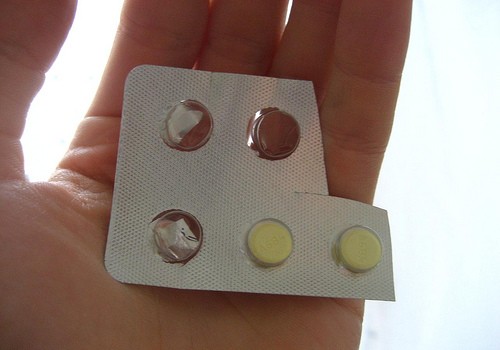
Antihistamines Can Ease Coughs And Aid Sleep
Cough medicines available from pharmacies sometimes include medicines called antihistamines. As the name suggests, these drugs prevent the release of a substance called histamine, which is more commonly associated with allergic reactions. Histamine has the effect of making blood vessels dilate (expand) and leak fluid which contains white (immune) cells. So antihistamines tend to dry up excessive secretions and this is why they are included in cough medicines. The idea is that they will reduce the secretions in your lungs, which are making you cough and ease congestion. Most of the antihistamines used in cough medicines are of the older (first generation) variety, which are associated with drowsiness as a side effect. This can be helpful if your cough is keeping you awake at night. But it also means that it might not be safe for you to drive or operate hazardous machinery. This might affect your ability to do your job. Always read the information supplied with the cough medicine to see if this, or other, side effects are mentioned. Antihistamines often used in cough medicines include: brompheniramine, chlorphenamine, diphenhydramine, doxylamine, promethazine, or triprolidine.
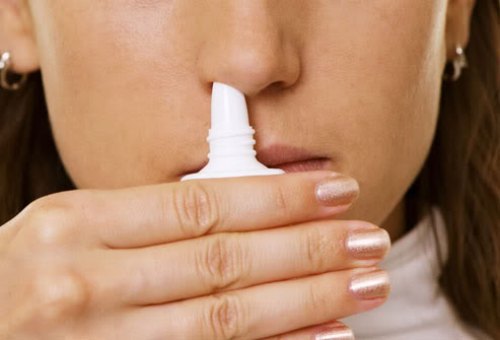
Saline-Based Nasal Spray To Cure Cough
Treating cough by using a saline spray for your nose, might seem an odd thing to do, but can be helpful in the case of dry, irritating coughs. The reason is that these coughs are often caused by postnasal drip. This is when mucus and exudate from the nose, drip, drip, drips constantly down the back of the throat, causing irritation - which stimulates the cough reflex. Excessive mucus and exudate in the nose can be caused by a cold or by allergies, so can occur at any time of year. Both the viruses which cause a cold, and allergens such as pollen, stimulate the release of excessive fluid – to wash away the viruses or pollen. It is this fluid which drips down the back of the throat. Using a nasal spray can help by washing out excessive mucus and exudate, along with allergens such as pollen or dust. Nasal sprays are available which contain a variety of medications, but to cure postnasal drip, often all that is needed is irrigation (washing out) with salt water (saline). It is possible to buy special bottles for this purpose and make up your own saline solution, but you can also buy...
Treating cough by using a saline spray for your nose, might seem an odd thing to do, but can be helpful in the case of dry, irritating coughs. The reason is that these coughs are often caused by postnasal drip. This is when mucus and exudate from the nose, drip, drip, drips constantly down the back of the throat, causing irritation - which stimulates the cough reflex. Excessive mucus and exudate in the nose can be caused by a cold or by allergies, so can occur at any time of year. Both the viruses which cause a cold, and allergens such as pollen, stimulate the release of excessive fluid – to wash away the viruses or pollen. It is this fluid which drips down the back of the throat. Using a nasal spray can help by washing out excessive mucus and exudate, along with allergens such as pollen or dust. Nasal sprays are available which contain a variety of medications, but to cure postnasal drip, often all that is needed is irrigation (washing out) with salt water (saline). It is possible to buy special bottles for this purpose and make up your own saline solution, but you can also buy ready-made solution supplied in appropriate spray bottles. The instructions should always be followed carefully to gain the maximum benefit from the treatment.
- Important notification about information and brand names used in this slideshow!
- Photo courtesy of summerlove313 by Photobucket : media.photobucket.com/user/summerlove313/media/MEDPICS/Migraine/2b3b8de5.jpg.html?filters[term]=nasal%20spray&filters[primary]=images&sort=1&o=31
- www.webmd.com/allergies/ss/slideshow-nasal-irrigation
- http://www.webmd.com/cold-and-flu/cold-guide/nasal-sprays-cold-relief
- http://www.health.harvard.edu/newsletters/Harvard_Mens_Health_Watch/2010/September/that-nagging-cough
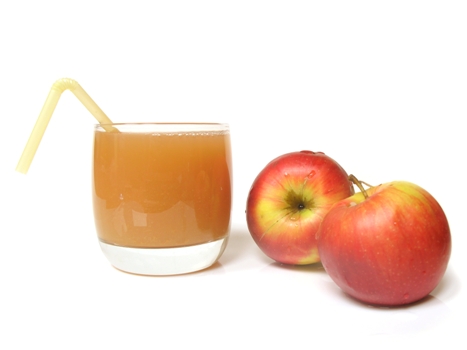
Drinking Plenty Fluids Can Be Helpful
Drinking plenty of fluids can be very helpful in relieving cough. It’s been found that even plain water can help to relieve cough by thinning and increasing the volume of mucus. This means it is much easier to expel the mucus by coughing and the effort required to bring up the mucus will be less. We have tiny hairs called cilia, lining our airways. They constantly beat in an upwards direction, carrying mucus and foreign particles like dirt and bacteria out of the lungs, and enabling them to be coughed up. But when mucus is thick and infected it is harder for the cilia to carry it upwards and requires more effort to cough up. By thinning the mucus, water makes it easier to cough up. Plain water is probably best but if you prefer tea, it is likely to have a similar effect. Some people believe that milk, as in drinks, increases mucus production but evidence to support this seems currently to be lacking.
- Important notification about information and brand names used in this slideshow!
- Photo courtesy of nkzs by sxc.hu : www.sxc.hu/photo/1262475
- www.emedicinehealth.com/relieving_a_cough-health/article_em.htm
- http://www.ncbi.nlm.nih.gov/pubmed/2154152
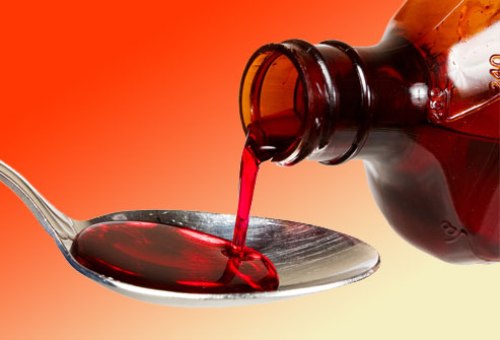
Do Cough Syrups Really Work?
For centuries syrup concoctions have been sold with the promise of relieving troublesome coughs, but do they really work? The answer is maybe as although many of the ingredients have been used for a very long time, there are few study data to support their effectiveness. Ingredients included in cough syrups fall into a number of categories. Some, such as sugar, lemon and honey are intended to make the preparation pleasant-tasting and to soothe the throat, in the case of honey. Others, such as guaifenesin, are expectorants meaning they thin mucus and make it more watery, so that it’s easier to cough up. Another common ingredient is dextromethorphan - an antitussive - which simply means it acts on the brain to suppress the cough reflex. It is related to morphine and because of concerns about its abuse some preparations containing this ingredient have been withdrawn at the request of the FDA. There is also some concern about the combination of antitussives with expectorants. This is because the latter increase the volume of mucus to be coughed up, while antitussives suppress the reflex to cough. This could lead to accumulation of large volumes of watery mucus in the lungs, particularly at...
For centuries syrup concoctions have been sold with the promise of relieving troublesome coughs, but do they really work? The answer is maybe as although many of the ingredients have been used for a very long time, there are few study data to support their effectiveness. Ingredients included in cough syrups fall into a number of categories. Some, such as sugar, lemon and honey are intended to make the preparation pleasant-tasting and to soothe the throat, in the case of honey. Others, such as guaifenesin, are expectorants meaning they thin mucus and make it more watery, so that it’s easier to cough up. Another common ingredient is dextromethorphan - an antitussive - which simply means it acts on the brain to suppress the cough reflex. It is related to morphine and because of concerns about its abuse some preparations containing this ingredient have been withdrawn at the request of the FDA. There is also some concern about the combination of antitussives with expectorants. This is because the latter increase the volume of mucus to be coughed up, while antitussives suppress the reflex to cough. This could lead to accumulation of large volumes of watery mucus in the lungs, particularly at night, which could make breathing difficult and encourage bacterial growth. Also while suppressing a dry cough with an antitussive, if the cough is productive ie mucus is produced, it should not really be suppressed as coughing is the natural way of eliminating the excessive mucus. So to be safe do not take cough syrups without consulting a pharmacist, do not take two different ones and do not take older remedies which may combine the two ingredients. If you have diabetes you should be aware of the sugar content of cough syrups and look out for sugar-free alternatives, which are very common now.
- Important notification about information and brand names used in this slideshow!
- Photo courtesy of CharisseT by Photobucket : media.photobucket.com/user/CharisseT/media/65dea4cf.jpg.html?filters[term]=cough%20syrup&filters[primary]=images&filters[secondary]=videos&sort=1&o=3
- www.emedicinehealth.com/relieving_a_cough-health/article_em.htm
- http://collections.infocollections.org/whocountry/en/d/Js6854e/5.1.html#Js6854e.5.1
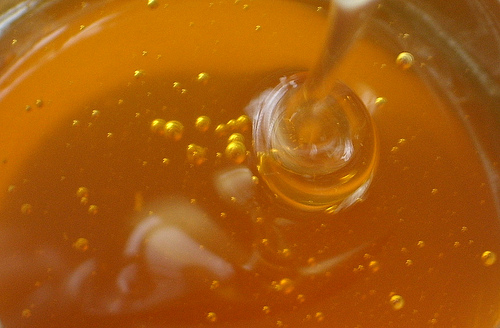
Sweeten That Cough With Honey
Honey is included in many cough and cold remedies and has been used to improve health since the time of the ancient Egyptians. It is credited with having healing and anti-infective properties. Its benefit in treating coughs is that it will soothe and lubricate the throat, relieving dry passages which irritate and cause a dry cough. But it should be avoided in children who are less than a year old because of the small chance of a serious form of food poisoning called botulism. In a study of children over two years of age, two teaspoons of honey taken at night reduced coughing and improved sleep. It was found to be as effective as dextromethorphan, a common cough suppressant in cold and cough remedies. As well as taken ‘neat’ from the spoon, honey can also be dissolved in hot drinks with water, tea or lemon juice being just a few suggestions.
- Important notification about information and brand names used in this slideshow!
- Photo courtesy of Siona Karen by Flickr : www.flickr.com/photos/sionakaren/3870732249/
- www.emedicinehealth.com/relieving_a_cough-health/article_em.htm
- http://www.mayoclinic.com/health/honey/AN01799
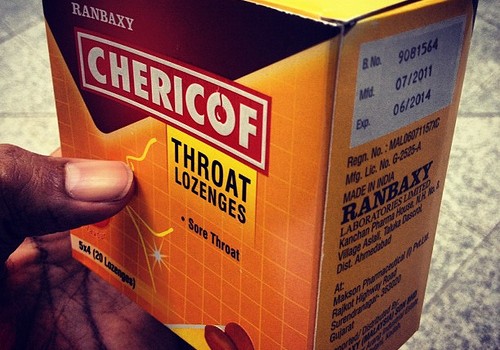
Sucking A Lozenge Can Soothe Cough
Lozenges or pastilles are the choice of many people to relieve the symptoms of a dry cough. One of the reasons is that persistent coughing will tend to make the throat dry and feel sore. When we suck a lozenge production of saliva increases and swallowing this, mixed in with the dissolved lozenge, will soothe the irritated lining of the throat. All manner of substances can be included in cough lozenges. One is dextromethorphan which is known as an antitussive, meaning that is treats cough. It works on the brain to suppress the cough reflex. Although this ingredient has been used for a number of years and is found in many other cough medicines, in 2011 the US Federal Drug Administration requested the withdrawal of certain products and formulations which contained it. Other ingredients of cough lozenges include honey and lemon, a combination designed to be particularly soothing. Many also contain menthol which has an anesthetic effect and eucalyptus.
- Important notification about information and brand names used in this slideshow!
- Photo courtesy of gurmit singh by Flickr : www.flickr.com/photos/gurms/7105516177/
- www.wikihow.com/Treat-a-Cough
- http://www.delsym.com/lozenges
- http://www.nlm.nih.gov/medlineplus/druginfo/meds/a682492.html
- http://www.webmd.com/cold-and-flu/cold-guide/cough-syrup-cough-medicine?page=2

Thyme Tea Remedy
Thyme is a natural herb which is credited with expectorant properties. This means that it’s good at thinning and loosening mucus plugging the airways, making it easier to cough up. Initially this may increase the frequency of coughing, but this will be a temporary effect and the effort of coughing will be less as the mucus is easier to bring up from the lungs. Thyme is also alleged to relax the airways improving the flow of air. Thyme is available fresh or dried and both have similar properties. To make thyme tea, add about two tablespoons of the fresh herb, or one teaspoon if it’s dried, to a cup of boiling water and leave for about ten minutes to allow the thyme to infuse into the water. Some people recommend adding other ingredients such as manuka honey as an antiseptic, and spices like turmeric, Cayenne pepper and ginger which are all thought to have health benefits. Thyme is a good source of vitamins and minerals, including vitamin C, which may be helpful in preventing coughs and colds.
- Important notification about information and brand names used in this slideshow!
- Photo courtesy of BenDad by sxc.hu : www.sxc.hu/photo/1014313
- www.stepintomygreenworld.com/healthyliving/cough-buster-thyme-tea/
- http://www.nutrition-and-you.com/thyme-herb.html
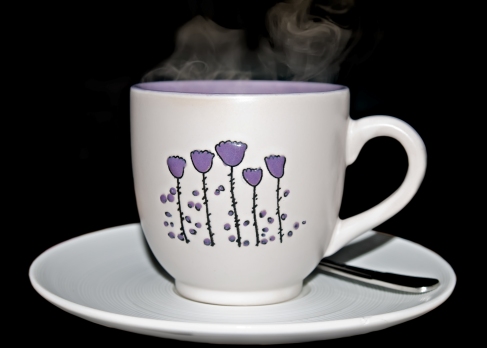
Inhaling Steam Moistens Respiratory Passages
Years ago, parents of babies and children with respiratory infections were told to keep the child in a room with a constantly-boiling kettle ie a steam-filled room. And still today, many people find that going to a steam room or baths improves their symptoms when they have a cold. There are good reasons why this is so and why steam inhalation can help ease a cough. The first is that the steam moistens the respiratory passages. A dry nose and throat is irritating and liable to increase coughing. The warmth from steam will also relax muscles which can reduce the frequency of coughing fits. Finally it is thought that steam helps to break up mucus, and make it easier to expel by coughing or blowing the nose. So while that might temporarily increase coughing, overall it reduces the need to cough and the effort involved in bringing up the mucus. Some people recommend adding essential oils such as peppermint or eucalyptus to steam inhalations. Care must be taken not to have the steam too hot, to avoid burning, particularly in children.
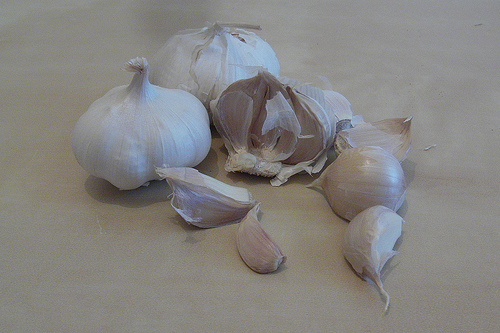
Vampires Might Not Be The Only Thing Garlic Wards Off
Garlic has long been credited with all kinds of health benefits from reducing cholesterol and preventing hardened arteries to curing parasitic infections. But one of its commonest medicinal uses is in the treatment of coughs and cold. Many people of Latino or Spanish origin will be familiar with a cough and cold treatment known as the ‘Spanish Cure’. It is a tea made with crushed garlic cloves, lemon and honey. It might not be the most appealing drink but apparently works quickly on coughs. It is thought that garlic has antimicrobial properties and is an effective decongestant. Others recommend covering crushed garlic cloves with just enough olive oil to cover and leaving for half an hour. The oil is then rubbed into the feet, covered with socks and left on overnight. You may be skeptical as to how this could cure a cough but the person recommending it swears that in the morning she has garlic breath – showing the garlic gets into her system via her feet! She also says it’s very effective in treating cough and she uses it on her children. It’s hard to see how it would do any harm anyway.
- Important notification about information and brand names used in this slideshow!
- Photo courtesy of Richard North by Flickr : www.flickr.com/photos/richardnorth/7315115016/
- www.prevention.com/health/health-concerns/cold-garlic-lemon-honey-tea-colds
- http://www.learningherbs.com/garlic_remedy.html


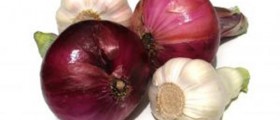

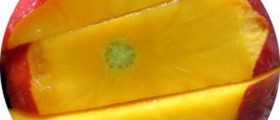
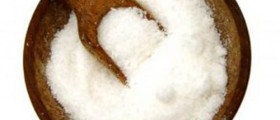
-Help-Treat-Your-Cold-Or-Flu_f_280x120.jpg)
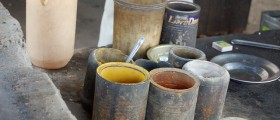
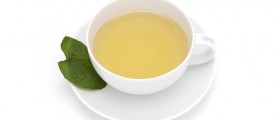




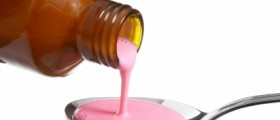
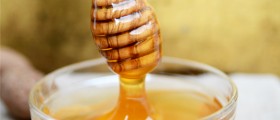

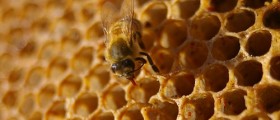


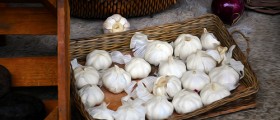


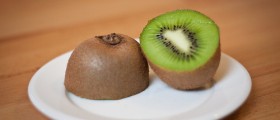
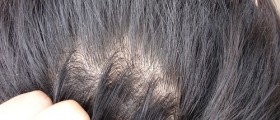

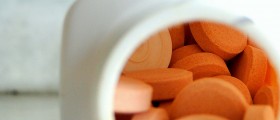

Your thoughts on this
Loading...